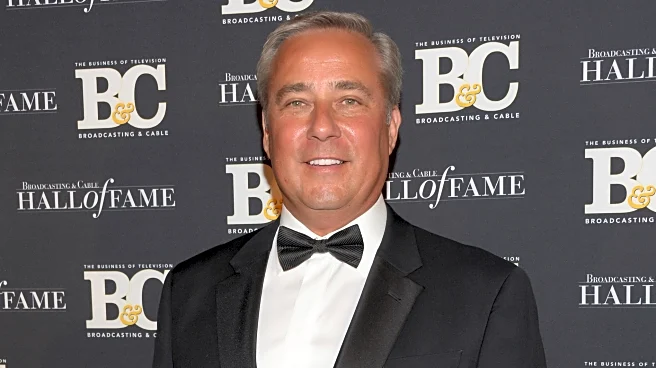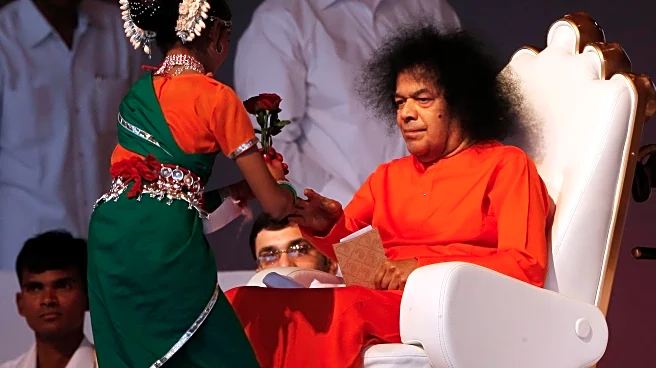What is the story about?
What's Happening?
Shonda Rhimes, the creator of 'Grey's Anatomy,' recently shared her experience of confronting the ABC president during the casting process of the show to ensure a diverse ensemble. Rhimes, who did not specify race in the script, was determined to avoid creating 'an all white show.' Her insistence led to a broader range of actors being considered for roles, which contributed to the show's diverse cast. Rhimes emphasized the importance of fearlessness in creativity, especially when facing industry norms that often lack diversity. As 'Grey's Anatomy' approaches its 22nd season, it continues to feature a variety of actors, including Ellen Pompeo, Patrick Dempsey, Sandra Oh, and Jesse Williams.
Why It's Important?
Rhimes' actions highlight the ongoing challenges and importance of diversity in television. By advocating for a diverse cast, she set a precedent for other shows to follow, potentially influencing industry standards. This move not only provided opportunities for actors of different backgrounds but also enriched the storytelling by reflecting a more realistic and inclusive society. The success of 'Grey's Anatomy' demonstrates the audience's appreciation for diverse representation, which can drive change in casting practices across the industry. Rhimes' approach underscores the need for creators to challenge traditional norms to foster inclusivity.
What's Next?
As 'Grey's Anatomy' continues into its 22nd season, the show's commitment to diversity remains a focal point. This could encourage other television producers and networks to prioritize diverse casting in their projects. The industry may see increased pressure from audiences and advocacy groups to maintain and expand representation in media. Rhimes' influence might inspire upcoming creators to adopt similar practices, potentially leading to a broader shift in how television shows are cast and produced.
Beyond the Headlines
Rhimes' confrontation with the ABC president reflects broader cultural and ethical considerations in media production. It raises questions about the responsibility of creators and networks to represent society accurately and inclusively. This incident may contribute to ongoing discussions about race and representation in Hollywood, prompting further examination of casting practices and the systemic barriers faced by minority actors. Rhimes' story serves as a reminder of the power of individual action in challenging and changing industry norms.















